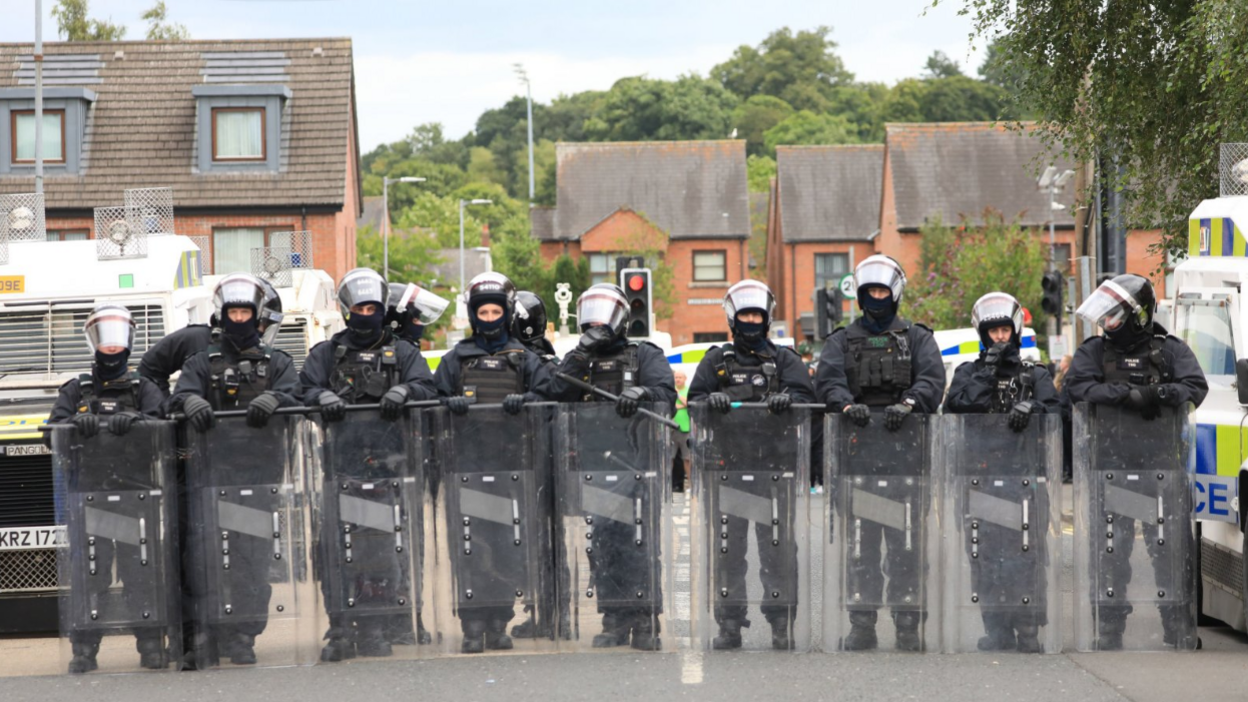'Riots engulf Britain' and 'summer of discontent'

Riot police form a line after people taking part in an anti-Islamic protest make their way through the area following a protest outside Belfast City Hall
- Published
For a second day running, most of the front pages focus on the nationwide protests associated with far-right groups.
The Sunday Telegraph reports that courts are preparing to sit overnight, external and at weekends to fast-track the sentencing of offenders. The paper says ministers, police chiefs and senior members of the judiciary met last night to discuss the emergency measures. It says while the government's plan to speed up justice will help to quell the current violence, its efforts will be futile if the current pressure on prisons means Britain adopts a ''catch and release strategy''.
The former Armed Forces Minister, John Spellar, tells the Sunday Express that the courts must back the police, external in making it ''unmistakably clear'' that the unrest must not continue, adding that ''stiff custodial sentences'' are needed.
The paper also reports that the Home Secretary, Yvette Cooper, is preparing to call in the Army if rioting continues, because of concerns that police forces could become overwhelmed and exhausted.
Four thousand extra riot police are on standby to deal with further disorder, external, according to the Sunday Times, which has spoken to the National Police Chiefs’ Council. One of its senior officers warns that ''if you've been involved in the rioting but haven't been arrested yet, your time will come.''
The UK is in the middle of a "summer of discontent", external according to the Mail on Sunday. The paper says the government's failure to grasp the dangers of its migration policies has created the circumstances in which dangerous internet rumours can spread and ignite. It says ''a general mistrust of the state has grown like an infestation of weeds''.
The Observer reports that so-called anti-strike laws - introduced by the previous Conservative government - are due to be scrapped ''within days''., external The paper says departments have been told they should ''ignore'' the law, which aims to force the likes of border security workers and railway staff to provide a minimum level of service. The deputy prime minister Angela Rayner tells the paper that the policy had succeeded “only in poisoning industrial relations”.
In the Daily Mail, former Conservative Party leader Sir Iain Duncan Smith describes the move as ''the beginning of radical change that will give power to the unions to strike at will''., external

Sign up for our morning newsletter and get BBC News in your inbox.
